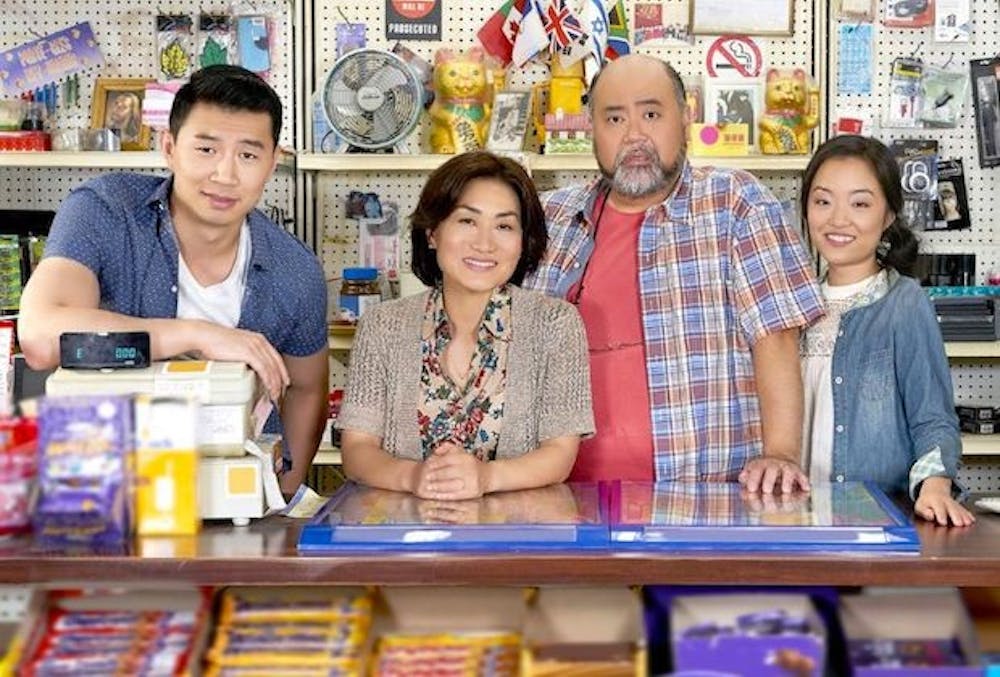When the fifth season of Canadian television show “Kim’s Convenience,” which premiered on June 2, was announced to be the final season in the beloved show’s run, a wave of dismay and surprise spread across social media. The show had been green-lit for a sixth season, and for good reason; after Netflix acquired global redistribution rights, “Kim’s Convenience” gained an international fanbase due to its wholesome and heartwarming portrayal of a Korean-Canadian family running their corner shop in Toronto, hijinks and all.
A slate of enthusiastic press releases and features accompanied the final season’s drop, such as Vanity Fair’s “Why ‘Kim’s Convenience’ Matters” and the New York Times’ “Why ‘Kim’s Convenience’ Is ‘Quietly Revolutionary.’” But claims of a racist writers' room — by the stars of the show themselves — quickly extinguished the glowing reviews of “Kim’s Convenience,” and perhaps the warm comfort of the sitcom itself.
Simu Liu, who played Jung, the son of the Kim family, penned an extensive post on Facebook that has since been deleted. Jean Yoon, who portrayed the “Umma,” or matriarch, shared a series of tweets in response to a critic’s commentary on Liu’s statements. The actors detailed the failures of “Kim’s Convenience” to honor the abilities and experiences of Asian immigrants, both on- and off-screen.
“Kim’s Convenience” is based on playwright and actor Ins Choi’s play of the same name. According to Yoon’s tweets, Choi was the only Korean writer credited on the show for its first four seasons. Kevin White, the show’s white co-creator and showrunner, helmed an overwhelmingly white writer’s room. The first —and only— Korean female present in the writer’s room was Jean Kim, who was a story editor for the fifth season. Liu and Yoon revealed that, after Choi’s presence on set diminished, they began to feel increasing discomfort with proposed storylines that were everything from “culturally inaccurate” to “overtly racist.”
The producers of the show remained largely silent, but the show’s verified twitter account shared a tweet, ostensibly in response to the controversy. The tweet spotlighted Anita Kapila, a South Asian writer and producer of the show, taking care to note that Kapila had worked on “Kim’s Convenience” since the first season.
Although “Kim’s Convenience” has come to an abrupt halt, White has announced plans for a spin-off centered around Shannon — Jung’s white girlfriend. Many praised the show for treating the Kim family as just such: a family, first and foremost. The Kims' Korean-Canadian identities never engender feelings of otherness in viewers. Rather, fans of any background can appreciate the familiar dynamics of a family that just so happens to be indisputably Korean-Canadian. Of course, with the spinoff aiming to feature a white character, the goal to capitalize on the success of “Kim’s Convenience” replaces the original intent of the show to share an authentic Asian-Canadian experience.
This isn’t to deny the show’s emotional impact on its viewers, or that its joyful spirit and humanity, at first blush, could ever give way to insensitive foundations. But treating “Kim’s Convenience” as a paragon of Asian immigrant representation ignores the difficulties that stemmed from a corporate denial of Asian immigrant autonomy and creativity.
Why does “Kim’s Convenience” matter? It shows us how far we have to go in our understanding that representation can, sadly, be shockingly insignificant in the face of larger systemic issues. Why is it “quietly revolutionary”? The show itself may have been one of the most successful mainstream Asian immigrant stories, but in the wake of its collapse, “Kim’s Convenience” sent a cautionary message, which is the first step to enact fundamental change in how we create and sustain culturally-sensitive media.
Get The Chronicle straight to your inbox
Signup for our weekly newsletter. Cancel at any time.

